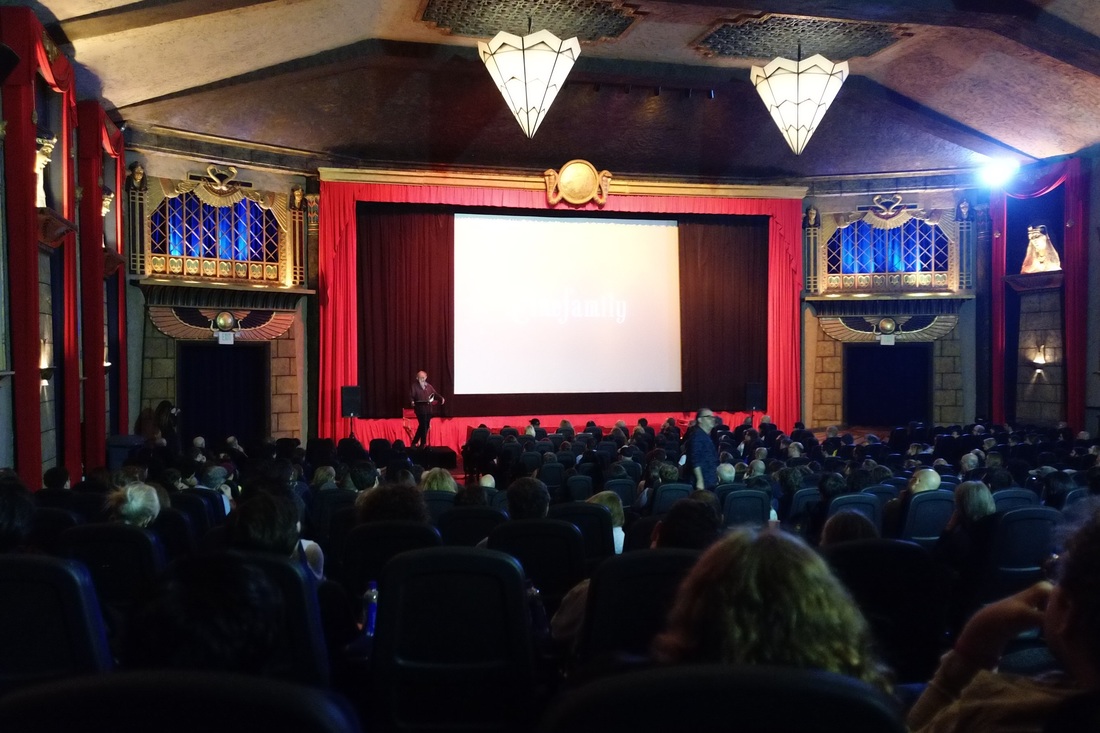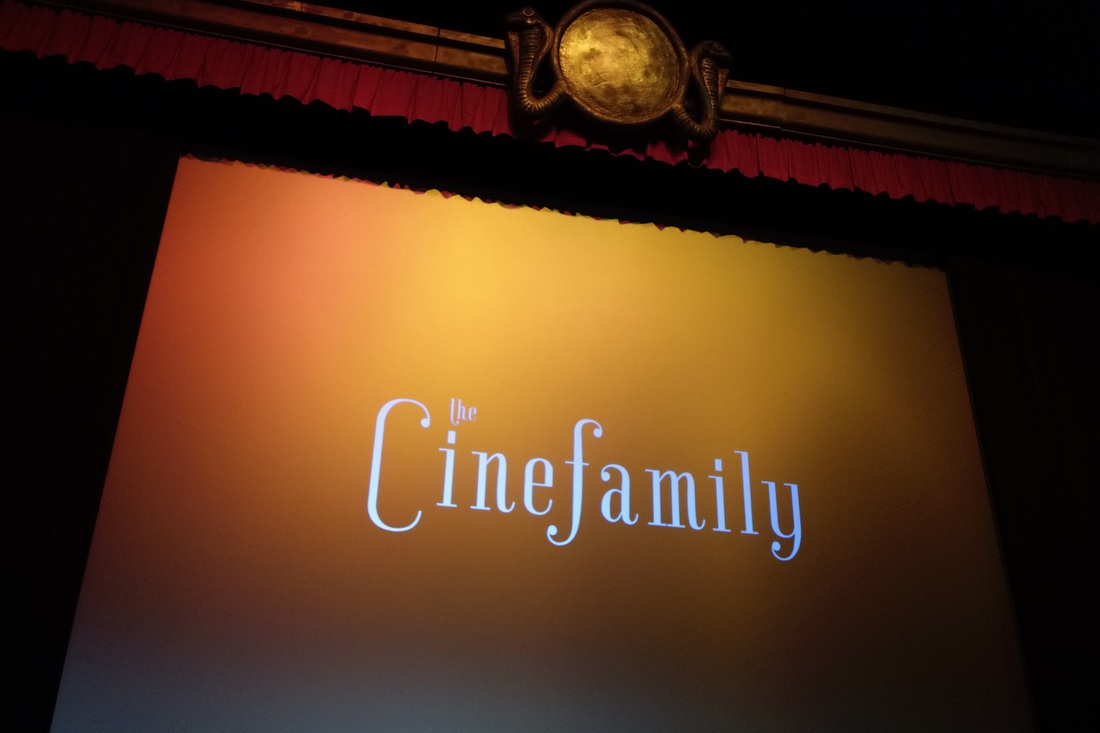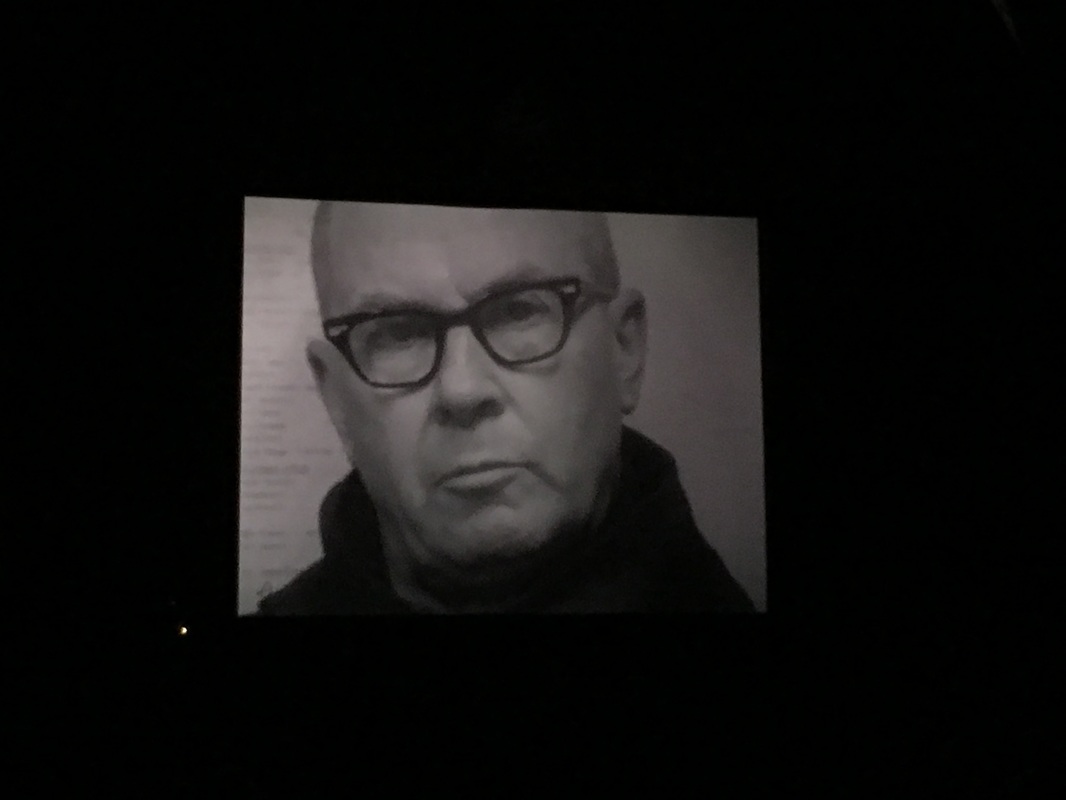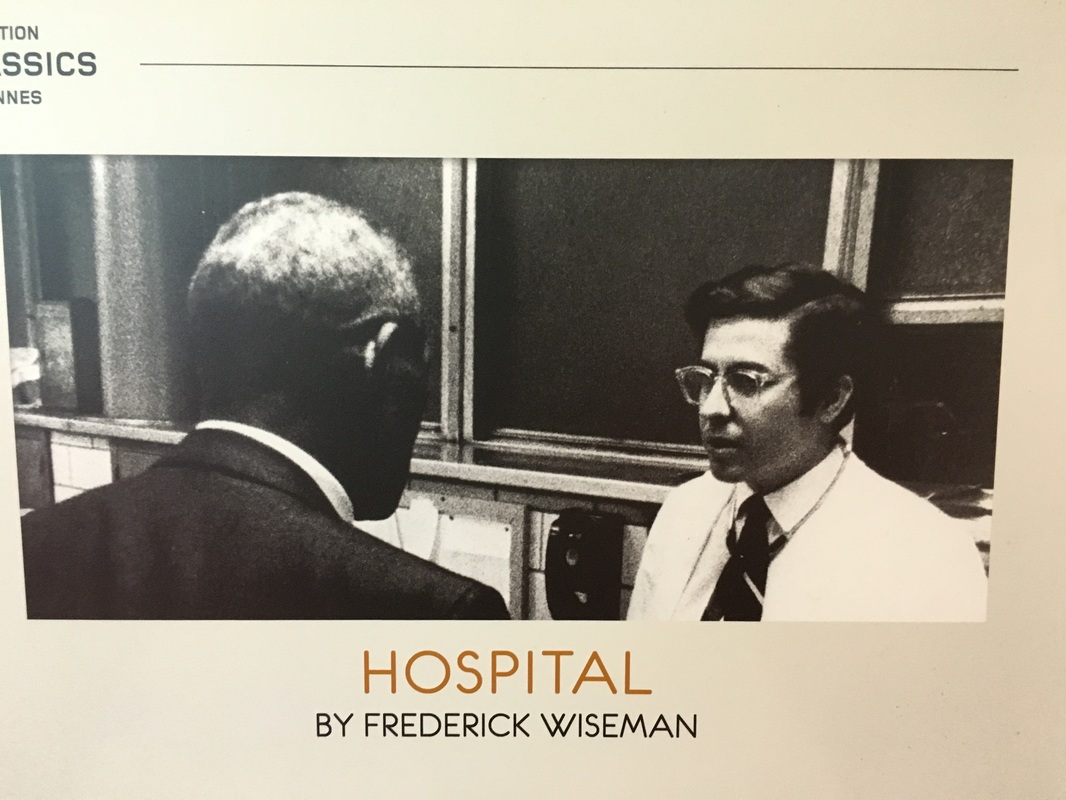|
No. 5: [re Titicut Follies] "The whole tension of the scene is whether the cigarette ash is going to fall in the chicken soup"
Update: Wiseman to earn honorary Oscar, Academy announces
Any student of documentary -- or of life -- would do well to examine the films of Fred Wiseman.
Over a career that spans more than 50 years, the director has explored social, educational and cultural institutions and human behavior in such films as Hospital [1969], Essene [1972], Welfare [1975], Belfast, Maine [1999] and Ballet [1995]. With the skill of a Robert Frank he elucidates reality with sharply observed images; environments that might seem mundane in some cases -- like a sardine factory in New England -- ripple with meaning under his lens. In making these kind of movies you're constantly surprised because you have no way of anticipating which way it's going to turn.
Today, the Motion Picture Academy announced it will present Wiseman with an honorary Oscar, saluting him for a body of work "illuminating lives in the context of social, cultural and government institutions." Wiseman and fellow honorees Jackie Chan, editor Anne V. Coates and casting director Lynn Stalmaster, will receive their Oscar trophies at a Governors Award ceremony in Hollywood November 12.
In May the Cannes Film Festival honored him for career achievement, screening Hospital as part of its tribute to the filmmaker. Just last year the 86-year-old director released his 40th documentary, In Jackson Heights, which won the New York Film Critics Circle Award for best nonfiction film. And he told an audience in Los Angeles he's now at work on another film, about the New York Public Library.
SHARE THIS:
Wiseman shared his lifetime of filmmaking wisdom at a master class in Los Angeles sponsored by the Cinefamily. These are the top six quotes about his process.
No. 1: Real or unreal? My view, and it's not shared by everybody, is that the camera has no real effect on behavior.
Wiseman rejected the suggestion that documentary filmmakers face an increasing challenge in executing their art because the public has become hyper-aware of cameras, and thus likely to perform for them in some fashion. The possibility of "captured behavior" is gone, or so some think.
"It's very rare that anyone refuses to be photographed and it's extraordinarily rare that I think somebody's acting for the camera. If I think that I stop shooting," Wiseman told the audience at the Cinefamily event. He said the sheer variety of human experience documented by nonfiction filmmakers argues against the idea that people are incapable of being themselves anymore, once they know a camera is present. And he said people aren't such talented actors anyway. No. 2: Hit 'Record' Unless you take the risk of shooting a lot you're going to miss the goodies.
Wiseman counseled filmmakers to always keep the camera rolling.
"You have to have a lot of patience in this kind of filmmaking because you don't know what's going to happen and you have to take the risk to keep shooting," he said. "There's only one rule in this kind of filmmaking -- if you try to stop and start because you say to yourself it's over, that's the moment when the best thing is going to happen." Stop recording and you miss out on the possibility of serendipity: "In making these kind of movies you're constantly surprised because you have no way of anticipating which way it's going to turn." No. 3: The art of the edit Editing is really talking to yourself.
"If you're like me, I find the most interesting conversations that I have are with myself, then this kind of internal muttering is what constitutes film editing," Wiseman said.
He showed a haunting clip from his 1971 black-and-white film Basic Training which showed recruits and enlisted men going through intensive military training in the midst of the Vietnam War. With the chatter of insects and machine gun fire as the soundtrack, Wiseman tightens his focus on the gestural aspects of the training -- the application of greasepaint, the slow motion drills. "When I was looking at the closeups it occurred to me that I might be able to cut the film like a primitive dance and the sounds of the locusts was the music of the sequence, for part of the sequence, and the sound of the machine gun is the music for the second part of the sequence." He continued, "I thought there was something beautiful in the closeups of the hands skittering across the sands, of the arms being raised as signals, the way the M-16 was cradled in the arms, the fashion in which the soldiers lifted their legs and very gently put them on the ground to be trained to avoid land mines. In a sense it became the first dance sequence, that the idea of making movies about different aspects of human movement... occurred to me. The experience of this sequence led to the other dance films that I made, the Paris Opera Ballet, the one about the American Ballet Theatre, the one about the Crazy Horse Nightclub and Boxing Gym."
No. 4: Pace yourself
I don't literally tap my foot but metaphorically I tap my foot to the rhythm...
"I work very hard on the rhythm of the film or the pacing," Wiseman said. "To the extent I'm aware of what lies behind it it's some internal sense of what constitutes rhythm. I don't literally tap my foot but metaphorically I tap my foot to the rhythm that I'm seeing and hearing in the order and selection of the sequences.
"Unless the film has a rhythm and unless I discover what I consider to be the appropriate rhythm for each subject it doesn't work as a film... But it's something that I work very hard on and how it's achieved I'm not sure I can tell you, except that I'm conscious of trying to find it with each subject."
Wiseman played a fascinating clip from his 1972 film Essene, "about daily life in a Benedictine monastery and the resolution of conflict between personal needs and the institutional and organizational priorities of the community," as the filmmaker's website describes it.
It's a tribute to Wiseman's skill and judgment that he lets one scene play out, showing a curmudgeonly member of the order named Brother Wilford as he strenuously fends off attempts by the Abbott to encourage him to view his fellow monks as brethren in Christ. The scene plays hilariously, particularly when Brother Wilford unexpectedly produces a flyswatter to attack an offending insect. This takes us to... No. 5: It's not Vaseline, it's chicken soup The whole tension of the scene is whether the cigarette ash is going to fall in the chicken soup.
An audience member asked Wiseman about another indelible moment from his filmography, 1967's Titicut Follies, a scene involving the force-feeding of an inmate at an institution for the criminally insane. The questioner recalled the patient being force-fed Vaseline by a nurse, but Wiseman corrected him to say it was actually a Hungarian psychiatrist, and the substance in question was chicken soup.
During the scene the doctor languidly draws from a cigarette -- the definition of a slow burn. "You wonder whether the Hungarian doctor who is doing the forced feeding is going to take time out to flick the ash. It's a horrible scene but in a sick way it's very funny, if you're like me and you're sick." Wiseman added, "That's an example of pure chance that I happened to be there at the moment that they let that man out to force feed him." No. 6: The point of it all That's one of the fascinating things about documentary. It's really the study of human behavior.
The filmmaker made some more general observations about the nature of his work.
"The opportunity to study and learn about human behavior is one of the things that motivates me and I find very fascinating and it is one of the motives behind making movies. I'm not the first person to find life strange and I have an opportunity to organize my thoughts about that strangeness in film terms." Among his other self-assessments: "In one sense all my films are about work of one form or another. And [in Belfast, Maine] I wanted to show the nature of this work and suggest what it might be like if you worked at a sardine factory for 20 years cutting the heads and tails off sardines and getting paid by the can so to speak."
"When [a film] works I think it works because it proceeds on two levels. It proceeds on the literal level -- what's happening, what are you seeing, what are the activities, what are people wearing, who says what to whom -- but it also has to work on an abstract level. What more general ideas are suggested by the literal events that you're seeing or hearing? And the scene in the sardine factory... illustrates that very directly. On the one hand you learn how sardines are canned and who's working there but you also get some sense of the nature of the work, the tedium that is involved in the work, the danger of working with sharp instruments because you see people with cuts, damage on their hands. And you see an industrial process in action.
"The literal and the abstract proceed in parallel tracks -- but the movie exists in the relationship between the literal and the abstract. And that's something that I tried to be very conscious of in the editing of the individual sequences and the order of the sequences. If it's too literal it gets boring and it's simply illustrative. And if it's too abstract you tend to get lost in the abstraction and lose the human interest that exists in the shots. So I'm always trying to create some kind of relationship between the literal and the abstract."
SHARE THIS:
|
AuthorMatthew Carey is a documentary filmmaker and journalist. His work has appeared on Deadline.com, CNN, CNN.com, TheWrap.com, NBCNews.com and in Documentary magazine. |
- Home
- News
- Videos
-
Galleries
- 2019 Tribeca Film Festival
- Full Frame Documentary Film Festival
- 2019 SXSW Film Festival
- SXSW 2018 Gallery
- 2019 Sundance Film Festival
- Outfest 2018 Photo Gallery
- Outfest 2017
- Sundance 2018 Photos
- 2017 LA Film Festival
- 2017 Cannes Film Festival
- Tribeca Film Festival 2017
- SXSW 2017 Gallery
- 2017 Berlin Film Festival
- Sundance 2017 Gallery
- 2016 Los Angeles Film Festival
- Cannes Film Festival 2016
- SXSW 2016 Gallery
- Berlinale 2016 Gallery
- Sundance 2016 Gallery
- Filmmaker Gallery
- About
- Contact
Proudly powered by Weebly
- Home
- News
- Videos
-
Galleries
- 2019 Tribeca Film Festival
- Full Frame Documentary Film Festival
- 2019 SXSW Film Festival
- SXSW 2018 Gallery
- 2019 Sundance Film Festival
- Outfest 2018 Photo Gallery
- Outfest 2017
- Sundance 2018 Photos
- 2017 LA Film Festival
- 2017 Cannes Film Festival
- Tribeca Film Festival 2017
- SXSW 2017 Gallery
- 2017 Berlin Film Festival
- Sundance 2017 Gallery
- 2016 Los Angeles Film Festival
- Cannes Film Festival 2016
- SXSW 2016 Gallery
- Berlinale 2016 Gallery
- Sundance 2016 Gallery
- Filmmaker Gallery
- About
- Contact







 RSS Feed
RSS Feed